No products in the cart.
Moonshiner
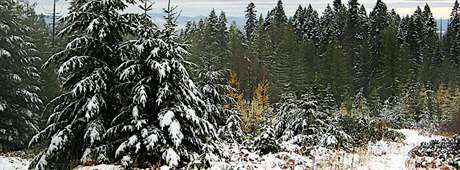
Everybody Was Doin’ It
By Rob Moore
In the mid-1970s, the Latah County Historical Society coordinated the creation of recorded interviews with more than two hundred northern Idahoans, a collection of nearly six hundred hours of oral history depicting life in the region. These voices were painstakingly transcribed from cassette tapes. Later, the transcripts were scanned and made fully text-searchable at the University of Idaho, where the cassettes were converted to digital audio files. A handful of interviewers, led by Sam Schrager and including Rob Moore, made the recordings. Most of the interviewees were everyday working folks, although Ulysses Showalter sometimes got involved in shady activities, such as his description below of making moonshine on Moscow Mountain during Prohibition in the Great Depression. This latter-day Ulysses died at Troy, age eighty-seven in 1974, the same year he was interviewed. The following excerpt, presented with permission, has been edited and rearranged for clarity and concision, and Rob’s questions have been removed to present the story of Ulysses Showalter entirely in his own words.
The logging camps at Potlatch, all of them, just about every one of them, shut down at that time. And so I went to making a little of that moonshine. I had a little rig. It was a six-gallon thing that the Monkey Ward’s and I guess Sears and Roebuck, all of ‘em, was making in those days especially for little moonshiners. You had to work ‘em over a little bit. It was six gallons, you see, with a slip-on lid. Then you put a rag around there with a little dough on it and it soon baked tight. Oh no, they didn’t sell no stills. They just sold an outfit on purpose so’s you could make a still out of it easy enough.
Well, run off a fifty-gallon barrel of moonshine, why, it would take you fourteen or fifteen hours with that little thing. And a boiler, why, you could do a lot better with that. You see, the boiler’d hold fourteen gallon at a time. You could buy that and put the thing on there, start it on an oil stove and leave it ’til the oil stove died. Six hours you could leave it. You go up and change it, and pour that there into another vessel and put on a new batch. Time it again and you have it in six hours.
The moonshine that I made was medicine. You know, you’d never have any stomach trouble if you had some of that every day. It was made out of bran instead of other grain, you see. Bran has a tendency, you know, to move your bowels, that bran. It’s the juice out of it.
If you get these here copper boilers, wash boilers, you know what I mean, don’t ya? You make one right out of that. Or you can have it made by some tinsmith, you know. You take the lid and you cut a hole in about the middle of the top of the lid. I soldered me a funnel to set on that. Then it runs into the copper tubing, you see, from the top of the boiler.
You’d have a wooden keg, or any kind, metal or anything, for water. And ‘course the water’s running and you got to keep that cool. If it gets too hot and it evaporates it won’t make the moonshine. See what it does is, the steam it makes runs through that water, condenses and runs down into your vessel, moonshine. It’s strong at first.
An exhibit of moonshine still equipment. Punk Toad.
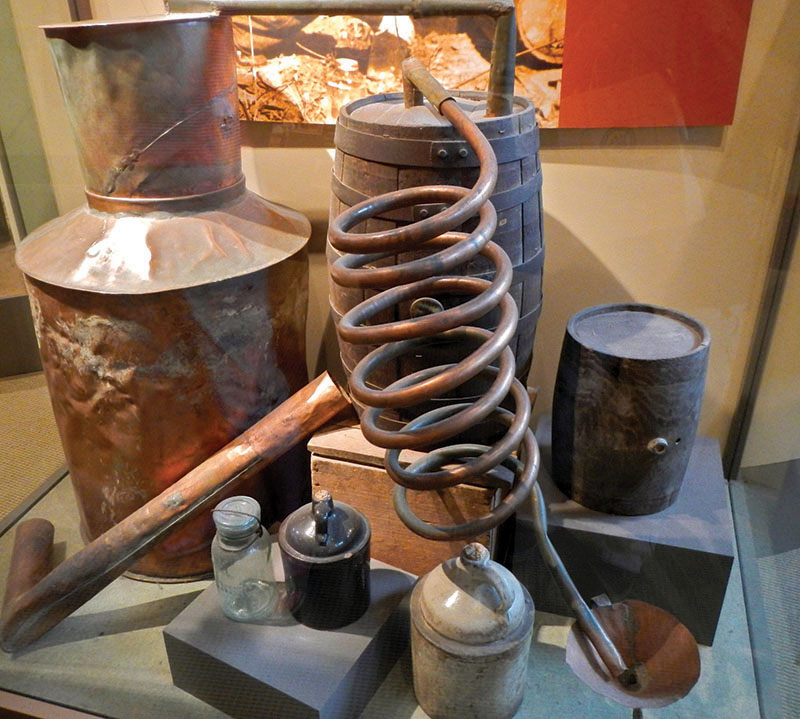
Moon Creek, northeast of Kellogg. Google Maps.
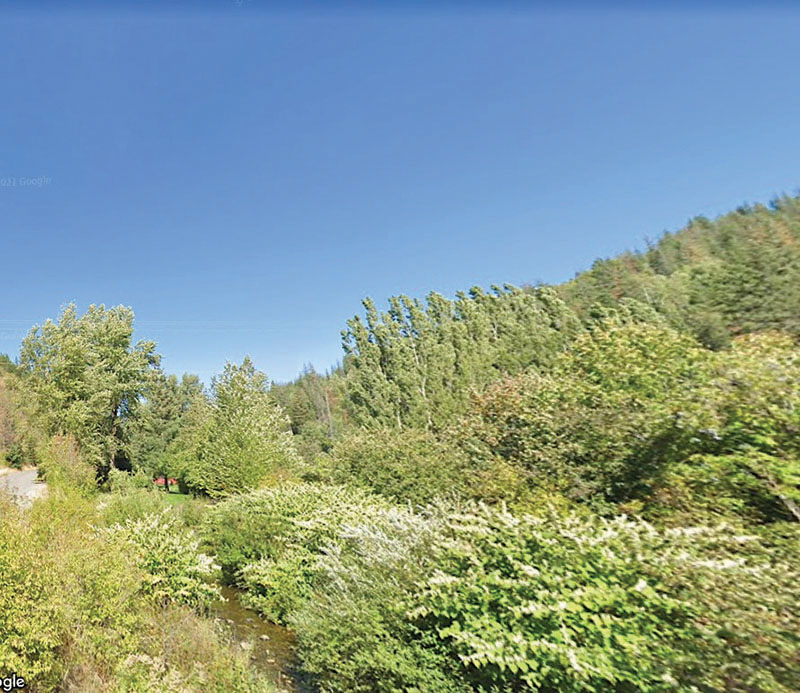
Moscow in the 1930s. Latah County Historical Society.
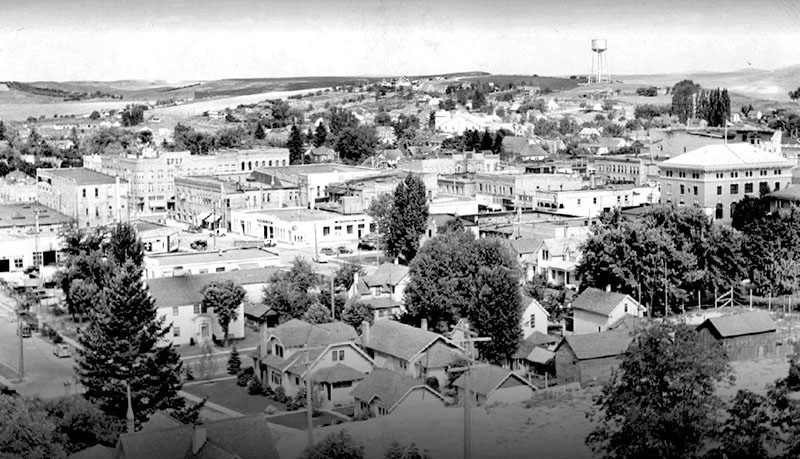
View of Moscow Mountain. Robert Ashworth.
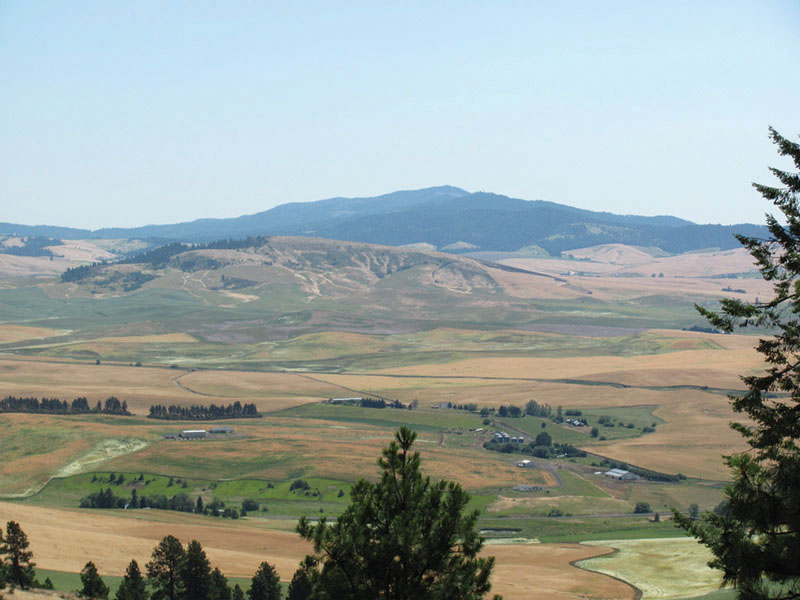
Atop Moscow Mountain. Matt Byrne.
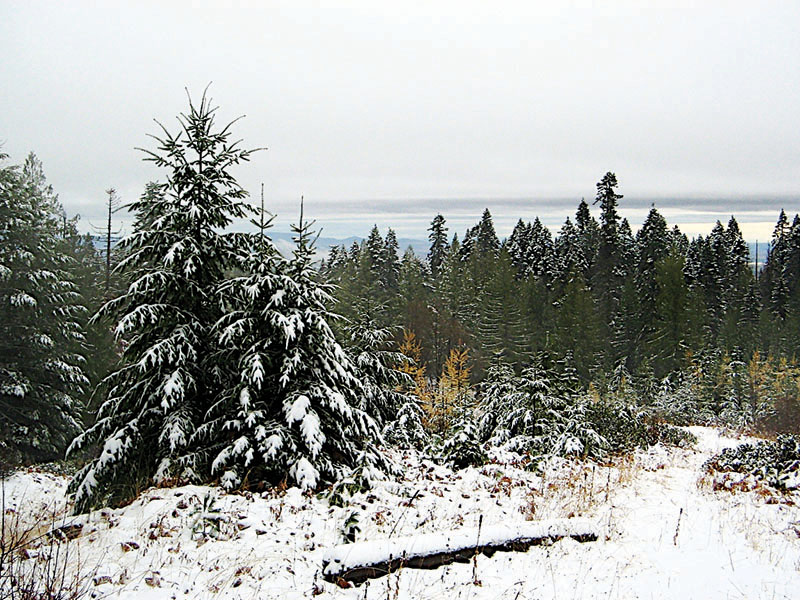
Potlatch Lumber Company's Elk River Mill, 1910. Steven R. Shook Collection.
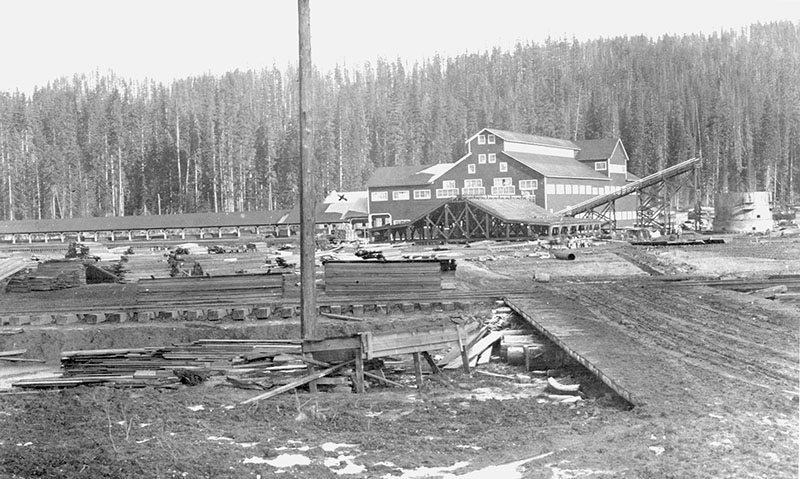
The gravestone in Troy of Ulysses Showalter and his spouse. Khat.
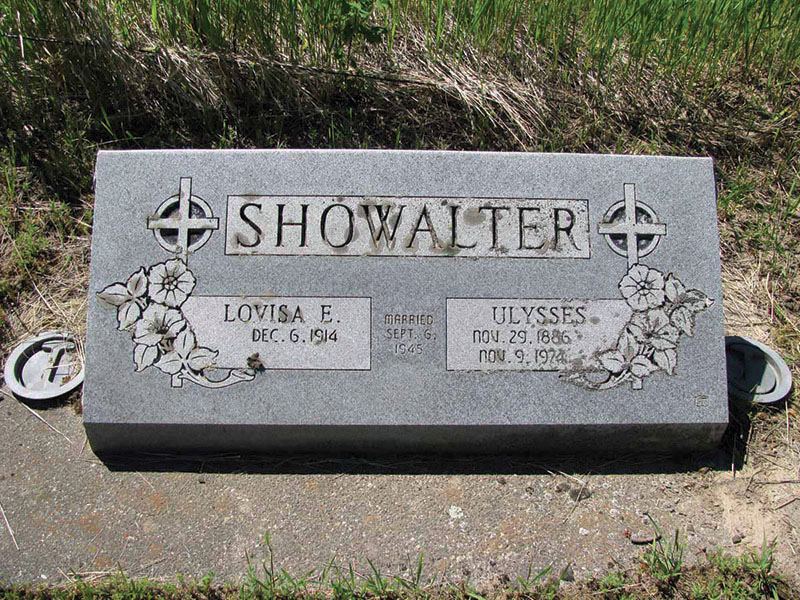
Troy, where Ulysses is buried. Bob Nichols, USDA.
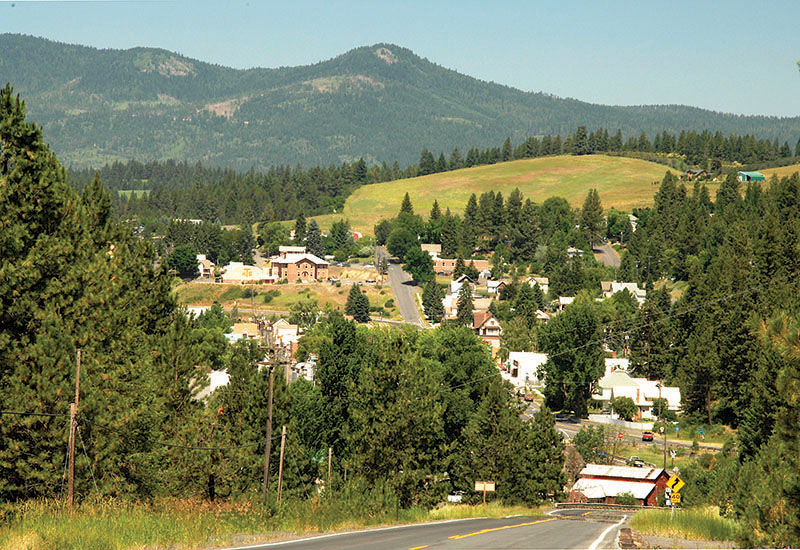
Hand-drawn map of Latah County, 1978. Latah County Museum Society.

Wooden barrel. You should take it and pour gasoline in it and set it afire, you know what I mean? The barrel—char it a little all around. ‘Course, you’d wanta look out or you’ll burn a hole in it, too. But that keeps it from tasting like wood. Put your mash in the barrel, you know.
Take oatmeal and make your moonshine. And the way to do it, now I can tell ya, fifty pounds of sugar to a fifty-gallon barrel. And about three gallons of bran. And then the yeast to make it work. But of course you can put corn in there too, and give it the corn flavor.
I built a little shack out of logs. I guess it was about eight feet by six or maybe eight-by-eight, I don’t remember. Say, in the summertime, if you was outside, then you’d have your little bench, your barrel sittin’ on it. Run a lantern just under this bench, you see, and turn it down. If you turn it on full blast it’d get too hot, your mash would. You’d lose it.
A double-run is, say, for instance, here you take [the mash] out of the barrel. You strain that through a gunny sack or anything, you know, into your still. And then you run it through, first ‘til just about all the alcohol is out of there. When it gets coming, let’s say you’d have a little tester, see they used to—I don’t know if you can get ‘em now or not, but that was during the Prohibition—you could get testers at any drugstore. Test the hell out of it. But anyway, you run it through, you see, ‘til you pret’ near get all the alcohol out of it and it probably would test seventy proof then. That‘s the first run. Well, maybe that ain’t right, but it’s close, anyway.
Then you put it aside, put it in a vessel to hold it. I had a big twenty-gallon crock, you know, jar, that I put that in, then I’d run the other barrel, if I had two barrels set at once. Well, for now I’ll just go from the one instead of taking the two. Take this here, and reduce it with water, plain water, to sixty proof. If you get it much stronger than that, then you’re liable to blow your still up. Then you can run it again. Heat, you got heat. I had a little oil stove that I had on it. ‘Course you could run it on a cookstove or anything like the oldtimers, I don’t know, you’d have trouble runnin’ it on an electric cook stove. Now, gas: you can run it on one of these gas stoves, too. Heat it, you see. Not run it too fast anytime, but just about so.
I had two testers, one was a government tester and the other was the little tube tester. That double-run would test 140 proof. Then I’d reduce it down to 100 with spring water. ‘Course I had the government tester there too, and that showed you a lot different than that other one. It didn’t matter whether your liquor was warm or cold. It’d give you the right test to it, the government tester did. ‘Course I don’t know where a feller would ever get a government tester now.
I found out the thing to do to color it, to make it taste like old whiskey. What made the old color and everything was the keg that it was put in, you see. And time. See, you put it in a barrel, they’re all charred, I think, put it in there and leave it a year. See, this was beating the time by taking oak shavings and scorching ‘em and put ‘em in. Well, say you had that big jar. Twenty gallons, probably fifteen gallons, and put in about half a gallon of them shavings, them parched oak shavings. You can buy ‘em by the gunny sack full in Spokane. My brother, he sent up there for ‘em to get one and send it down. A sack, you know.
He wasn’t moonshining. He made some once in awhile for his own use but he didn’t try to make a business out of it. See, the reason I was making a business out of it was, heck, you couldn’t get any work. Started in ‘29, I think, or something like that. Gosh, there wasn’t no work. If you cut wood you might get a few cord to cut, and if you worked in the sawmill maybe you’d get two days a week at two dollars a day if you could get it. But you couldn’t hardly get work.
I’d sell it for five dollars a gallon. There was other fellers that was selling their booze for four dollars, you see, and they’d buy mine for five in preference to this other for four. I got so I could run about six gallon out of one barrel. That would be thirty dollars. Then you had to buy your sugar, and your bran, and your yeast, and the jugs. There’s one thing and another. I’d been doing pretty well then, you know, for just a common plug for a living as a man. Living and paying a few debts, you see.
After you get started, you could get a barrel of mash ready to go in about four days, or less sometimes. It depended a little on circumstances. Four days, then you can run that off. You just take one barrel, you’d run that off and double it back in about one day. ‘Course, you see, night nor morning nor day, didn’t make any difference to me. I could go to bed and set the clock, the alarm, to go off so’s I could go to sleep and get up and go and attend to it different times like that.
You see up there at Kellogg—it wasn’t exactly right at Kellogg—up there was a creek and they called it Moon Creek, ‘cause there was so much moonshine made on it. There was an Italian, well, maybe three or four of ‘em, I don’t know. Anyway, they built a house there that would hold probably a hundred of them barrels. And they had it up in there. You didn’t have to have a lantern under it if you had it warm enough to let it work, so they had that warm enough to work.
You see, they was protected by these federals, they figured, from Moon Creek clear into Spokane. Revenuers, they’re the guys, and they protect ‘em. Of course, at my size, why, I couldn’t afford to pay protection for the amount of moon I was making. ‘Cause they paid thirty-five dollars a day for protection, you see. Seems like it was three thousand gallons or somethin’ of moon they run there, that one outfit, see? But anyway, if you wanted protection, you’d know who these revenuers was. Well, you could go to one of ‘em and tell ‘em you’d like some protection.
“Oh no, you’re looking up the wrong feller. Don’t fool around me or I’ll have you put in jail.” And he says, “If you don’t believe it, you go over here and see Bob Moon. He’ll tell ya.” So you go over and see Bob Moon and he’d say, “How much moon this time do you want to make?” You tell him and he’ll tell ya how much you had to pay to make it. No, you couldn’t prove anything with them federals. I knowed about that one up at Moon because there was a fella that married my niece that lived right there on Moon Creek. There was a feller here [in Moscow] was a federal man. But he told me, he says, “I don’t look for moonshiners,” he says. “They sign a warrant for me and I take ‘em in.” Bob West. He owned this whole hill here once. You know, all the houses on it. A lot of the land, too.
The ones that arrested me was from up at Coeur d’Alene. No, up from Kellogg, one of them was, and the other one belonged to Coeur d’Alene. Let’s see, I forget their names. They was accompanied by the sheriff here. Sheriff Summerfield. He was a good guy, too.
There was a fella was runnin’ a restaurant down here on Third Street and selling moonshine on the side. And I never seen the fella…I don’t know if there’s some of his relations around here yet, I won’t tell ya [his name], some of his folks might not ever knowed about him, about being into moonshining or something. This fella here in town was running a restaurant and he had a partner and his partner was doing the bootleggin’ of the moonshine. So, he sold it to some kid over by Garfield, I guess it was over there, and the fella, he got drunk, you know, the kid did. Thought he was drunk, I suppose. He was only eighteen years old or something like that, so the policeman got ahold of him. They told him that if he’d help get the fella that sold it to him, why, they’d let him free. Well, he did see this fella and they caught this fella that sold it to him and give him six months in this county jail here at the courthouse. Well, I don’t know what in the Sam Hill was the matter with him, but they got him down in the bottom there in the sheriff’s office and they was a-quizzing him, you know, and he told every fella that he’d ever heard of making moonshine or anything. Told the officials, you see.
‘Course these federals were around, waiting for ‘em to round up somebody. There was quite a few of ‘em around on the other side of Kendrick, over around Southwick in there. And, let’s see, there’s several of them [moonshiners] that got searched here and they had a little stuff on ‘em. Well, this one fella…they found him up in the woods. So this one kid that was up there with him, why he went along and run in all the way. Well, the wife—the officials had got there and told her what they was after, and while they was gone, why, she had four or five gallon of moonshine already made and it was upstairs. And she slipped up and poured it out, it run down through the house there I guess somewhere. Anyway, then the fellas, if they’d caught the mash, you see, why then they’d have got him. This darn kid, he slipped in ahead and upset the mash barrel. They probably was running only ten or twelve gallons of mash, you know. Keep it in a little keg. He upset it and it mixed in with some pickle brine, I think. Just, anyway, to get rid of it, to get it poured into something. They got some but it wasn’t enough to convict him on.
Of course these federal men, they was out to get the reputation up and keep it. But just take the common law-like sheriff, some of them—of course, I didn’t do it but there was some—would take the sheriff a gallon of moonshine and they’d give ‘em a little advantage by letting ‘em know when the federals was around in the country. See, I had a friend, he was a cop, and one time he phones me up and he says, “There’s hunters.” Of course, this was in the middle of the summer. “There’s hunters out in the country now.” I wasn’t a-makin’ no moon but he didn’t know whether I was.
I told him, “Heck,” I says, “there ain’t no game open.” He said, “That don’t matter, there’s hunters.” I knew what he meant. There was stool pigeons looking for stills.
Everybody was making moonshine in those days, just about. After I got caught for moonshining, why, I found out all my neighbors was making it, too.
I just lacked one day of being six months from the day I was sentenced [to McNeill Island Corrections Center in Washington] ‘til I was back in Moscow.
More interviews with northern Idahoans in the 1970s can be found online by searching for the Latah County Oral History Collection.
This content is available for purchase. Please select from available options.
Register & Purchase Purchase Only
Register & Purchase Purchase Only

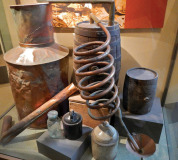
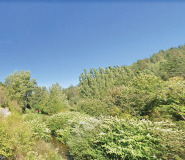
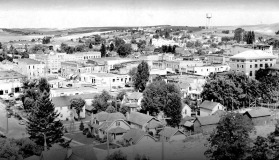
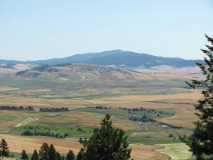
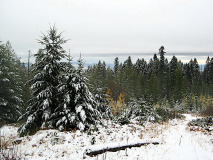
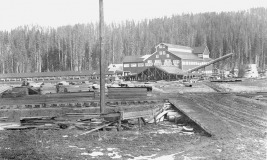
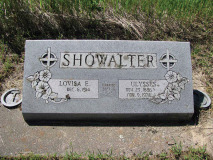
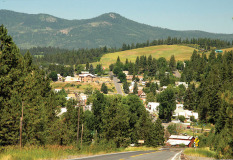
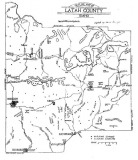
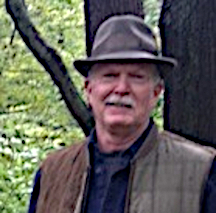
Comments are closed.